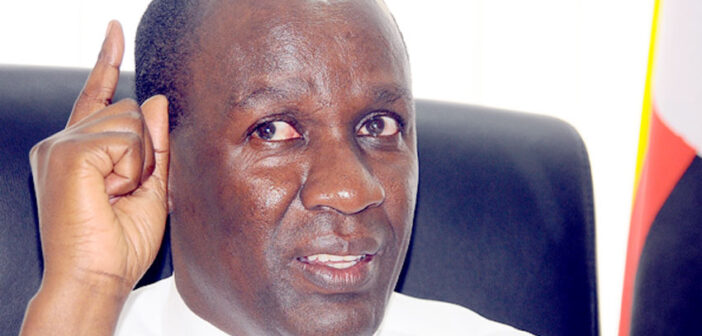Of recent, research shows that social media Misuse amongst the Youths in Uganda is gaining momentum, this has moved us to share a one on one with a senior politician, Businessman and government official, Captain Mike Mukula.
According to Mukula all algorithms can amplify the spread of misinformation, encourage addictive behavior, and create echo chambers that reinforce extreme views. Additionally, AI-driven deep fake technology poses risks to privacy and truth in online interactions.
Mukula further says It’s crucial to educate users about these risks and implement measures to mitigate them, such as improved algorithm transparency and user controls.
recently, captain Mukula was a victim of cyber bulling, where a fake twit trended on social media claiming he was a sectarianism promotor.
“While social media may offer some benefits, there are ample indicators that social media can also pose a risk of harm to the mental health and well-being of children and adolescents. Social media use by young people is nearly universal, with up to 95% of young people ages 13-27 reporting using a social media platform and more than a third saying they use social media “almost constantly.”-Mukula noted.
With adolescence and childhood representing a critical stage in brain development that can make young people more vulnerable to harms from social media, Captain Mike Mukula is issuing a call for urgent action by policymakers, technology companies, researchers, families, and young people alike to gain a better understanding of the full impact of social media use, maximize the benefits and minimize the harms of social media platforms, and create safer, healthier online environments to protect children.
“Usage of social media can become harmful depending on the amount of time children spend on the platforms, the type of content they consume or are otherwise exposed to, and the degree to which it disrupts activities that are essential for health like sleep and physical activity. Importantly, different children are affected by social media in different ways, including based on cultural, historical, and socio-economic factors. Among the benefits”-Mukula
He further said adolescents report shows that social media helps them feel more accepted (58%), like they have people who can support them through tough times (67%), like they have a place to show their creative side (71%), and more connected to what’s going on in their friends’ lives (80%).
However, social media use can be excessive and problematic for some children. Recent research shows that adolescents who spend more than three hours per day on social media face double the risk of experiencing poor mental health outcomes, such as symptoms of depression and anxiety; yet one 2022 survey of teenagers found that, on average, they spend 3.5 hours a day on social media. Social media may also perpetuate body dissatisfaction, disordered eating behaviors, social comparison, and low self-esteem, especially among adolescent girls. One-third or more of girls aged 11-15 say they feel “addicted” to certain social media platforms and over half of teenagers report that it would be hard to give up social media.
When asked about the impact of social media on their body image, 46% of adolescents aged 13-17 said social media makes them feel worse, 40% said it makes them feel neither better nor worse, and only 14% said it makes them feel better. Additionally, 64% of adolescents are “often” or “sometimes” exposed to hate-based content through social media. Studies have also shown a relationship between social media use and poor sleep quality, reduced sleep duration, sleep difficulties, and depression among youth.


